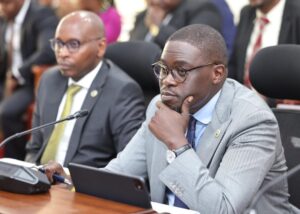Deputy President Rigathi Gachagua Impeached: Lessons from Hon. Wakili Edward Muriu

In a historic parliamentary session on Tuesday, 281 members of Parliament voted to impeach Deputy President Rigathi Gachagua, while only 44 stood in his defense. The significant divide in support has sparked discussions about the implications of this political upheaval, with Gatanga Member of Parliament Wakili Edward Muriu sharing his insights on the matter.
Muriu described the experience as unusual, noting that public sentiment appeared to favor Gachagua’s leadership. “In the public participation process over the last two days, it was clear that a majority of Kenyans opposed the planned impeachment. However, the dynamics within Parliament told a different story,” he said.
The MP suggested that Gachagua’s strained relationships with members of Parliament played a critical role in his downfall. “It seems he does not have a good rapport with many MPs, even from his own region,” Muriu observed, highlighting that numerous legislators openly supported the impeachment motion.
He further explained that Gachagua’s own words and actions contributed to his situation. “As Deputy President, he believed honesty was paramount, but this truthfulness ultimately rendered him an unreliable assistant to the President,” Muriu commented. He pointed out that Gachagua’s abrasive style did not resonate well within the parliamentary environment, where decorum is expected from the highest offices.
Muriu noted that the Deputy President’s failure to actively lobby for support was a critical misstep. “The mere 44 votes in his favor suggest he did not make sufficient efforts to engage and win over fellow MPs. Relying on public sympathy through media channels proved insufficient,” he stated.
Additionally, Muriu criticized Gachagua’s approach in the days following the impeachment motion. “Asking for forgiveness on Sunday and then defending himself through the media on Monday was another significant error. A sincere apology to Parliament, coupled with a commitment to collaborate, might have swayed opinions,” he remarked.
Reflecting on the outcome, Muriu emphasized the essence of democracy: “The minority had their say, but the majority got their way. Now, the matter moves to the Senate.”
As Kenya awaits the Senate’s decision, the political landscape continues to shift, underscoring the importance of leadership dynamics and relationships within government.




